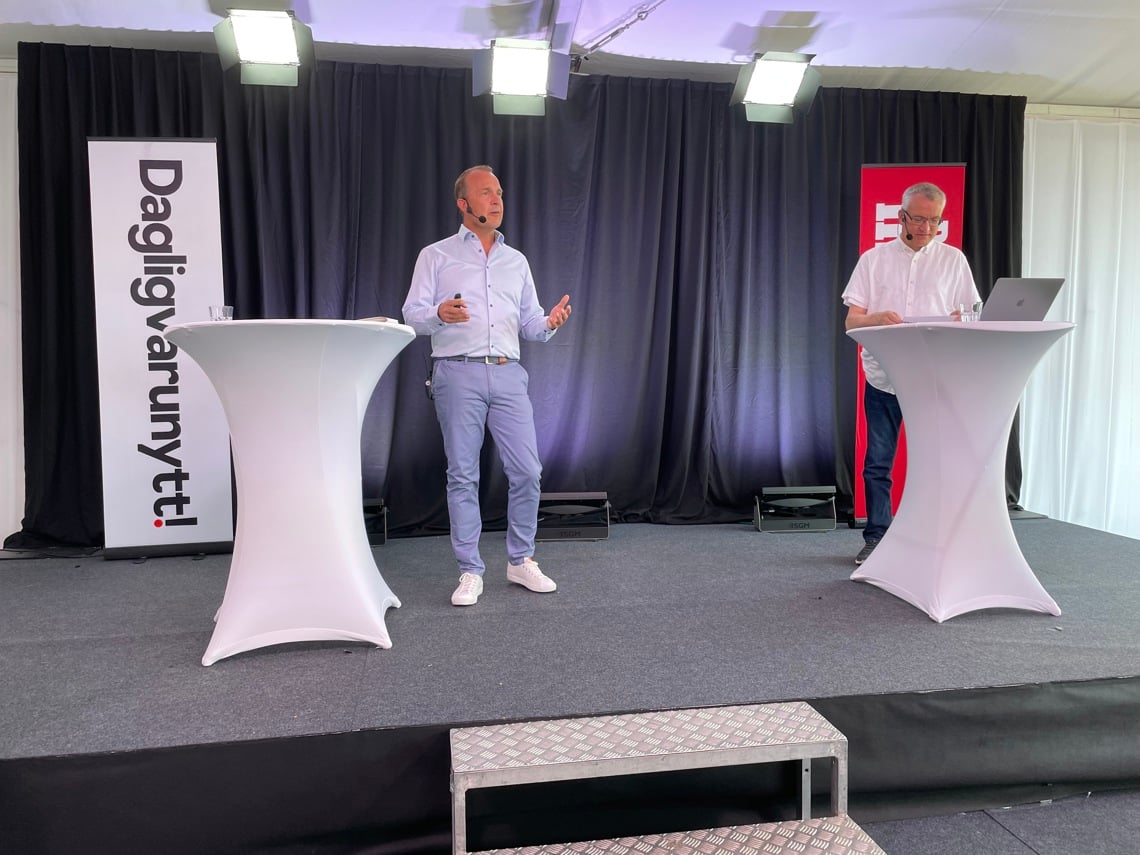As the global population is projected to reach 10 billion by 2050, the rising demand for food highlights the critical necessity for a shift towards sustainable food supply chains. On June 30, our President and CEO, Johan Westman, addressed this pressing issue in a speech at Future Foods’ stage in Almedalen, an annual political Swedish event bringing together politicians, companies, organizations, and the public for a week of discussions and debates.
Currently, food production accounts for approximately one-quarter of global greenhouse gas emissions and as we try to fulfil the Paris Agreement's mission of curbing temperature rise to 1.5 degrees Celsius by 2030, the significance of sustainable food chains takes centre stage. In his speech, Johan Westman underscores the importance of optimizing land utilization, implementing incentives for consumers to make environmentally conscious choices, embracing innovations and hybrid solutions, and adopting a range of strategies such as reducing food waste, promoting sustainable agricultural practices, and modifying dietary habits. According to him, these examples represent measures that promote the development of more sustainable food supply chains as we aim to provide nourishment to a rapidly growing global population.
The future is plant-based
With approximately five billion hectares of the Earth's surface dedicated to agriculture, the importance of responsible land utilization cannot be overstated. Johan Westman highlights prioritizing the efficient use of available land resources to prevent further deforestation. In this regard, plant-based food production emerges as a significant contributor to sustainable solutions, as it requires less arable land per calorie when compared to beef production. For example, rapeseed oil and palm oil need just 1.2 m² and 0.3 m² respectively per 1000 kcal, while beef demands a staggering 119.5 m². The environmental benefits of plant-based options extend further, with significantly lower greenhouse gas emissions. Rapeseed oil emits only 0.43 kg CO₂eq and palm oil emits 0.83 kg CO₂eq per 1000 kcal, compared to beef's contribution of 36.40 kg CO₂eq.
While taste remains a challenge for adopting plant-based diets, Johan Westman emphasizes that there is no immediate need for ground-breaking innovations. A practical approach to address this barrier involves combining meat with vegetable alternatives to accommodate various preferences, leveraging existing resources.
Johan Westman calls for collaboration
Johan Westman underscores that achieving a genuinely sustainable food supply chain requires a collaborative effort involving politicians, industry stakeholders, and informed consumers. It is vital to foster a clear understanding of what constitutes true sustainability, avoiding subjective judgments of what is considered good or bad. Policymakers can contribute by implementing CO2-based value-added tax (VAT), taking inspiration from successful initiatives in the automotive industry. Such regulations would expedite the transition to more sustainable dietary choices and provide incentives for consumers to make environmentally responsible decisions.



